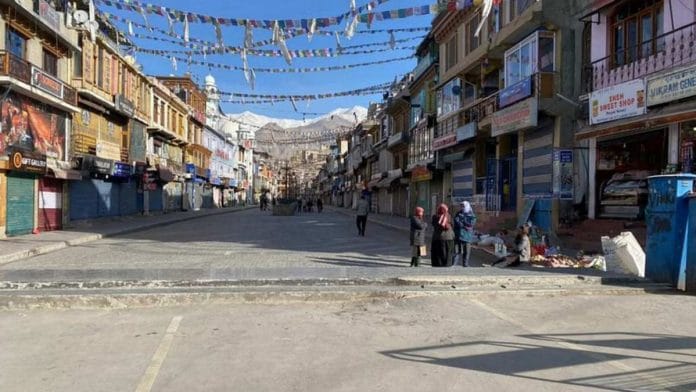New Delhi: The dry, mountainous terrain of Ladakh, once considered remote and unreachable, is getting an unexpected upgrade — its first asset management company (AMC). Nippon India Mutual Fund is opening its first branch in Leh on 1 August, a bid to “unlock new doors and possibilities for the people,” according to an advertisement spread across various national dailies.
“This is a good step, taken for the national integration of our border areas, and the financial inclusion of Ladakh’s people,” said General Ved Prakash Malik, former Chief of Army Staff, who led the Indian army during the 1999 Kargil conflict, in Ladakh’s second largest city. “It’s a good place to start.”
General Malik has had a long association with Ladakh, beginning from the 1962 India-China war. He also serves as an independent director with Nippon India Mutual Funds.
Investment summit in Ladakh
Since it was founded in 1982, Nippon India Mutual Funds now has 265 branches peppered across the country, with an average assets under management (AAUM) of Rs 5,69,954 crore, according to its website. The website also refers to the company as one of India’s “fastest growing mutual funds.”
Also read: Deepak Nayyar wants to abolish UGC and end political appointments at universities
“Continuing our journey of financial inclusion and going where no AMC has ever gone. We are blessed & honoured to have @Vedmalik1 [General Malik] inaugurate our operations in Leh & kickstart the journey of investor education for armed forces & residents of Leh,” said Nippon’s CEO and Executive Director Sundeep Sikka in a post on X, formerly Twitter.
Promoting investments appears to have become a priority for the region, which was made a Union Territory following the abrogation of Article 370 in 2019.
Ladakh Lieutenant Governor Kavinder Gupta recently met representatives from the People of India Chamber of Commerce and Industry (PIOCCI) to discuss a potential investment summit in Ladakh.
Gupta, according to a report by PTI, emphasised Ladakh’s investment potential: focusing on areas like “eco-tourism, renewable energy, agro-based industries, organic farming, medicinal herbs, handicrafts and cultural exports, and education and skill development.”
He also said that “full support will be extended to initiatives that bring socio-economic transformation to the Union Territory.”
(Edited by Ratan Priya)






